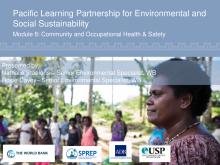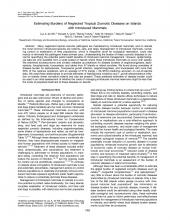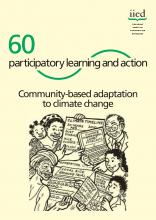Estimating burdens of neglected tropical zoonotic diseases on islands with introduced mammals

BRB
Available Online
Croll, Donald A.
,
Holmes, Nick D.
,
Kilpatrick, A. Marm.
,
Newton, Kelly M.
,
Spatz, Dena R.
,
Tershy, Bernie.
,
de Wit, Luz A.
2017
Many neglected tropical zoonotic pathogens are maintained by introduced mammals, and on islands the most common introduced species are rodents, cats, and dogs. Management of introduced mammals, including control or eradication of feral populations, which is frequently done for ecological restoration, could also reduce or eliminate the pathogens these animals carry. Understanding the burden of these zoonotic diseases is crucial for quantifying the potential public health benefits of introduced mammal management. However, epidemiological data are only available from a small subset of islands where these introduced mammals co-occur with people. We examined socioeconomic and climatic variables as predictors for disease burdens of angiostrongyliasis, leptospirosis, toxoplasmosis, toxocariasis, and rabies from 57 islands or island countries. We found strong correlates of disease burden for leptospirosis, Toxoplasma gondii infection, angiostrongyliasis, and toxocariasis with more than 50% of the variance explained, and an average of 57% (range = 3295%) predictive accuracy on out-of-sample data. We used these relationships to provide estimates of leptospirosis incidence and T. gondii seroprevalence infection on islands where nonnative rodents and cats are present. These predicted estimates of disease burden could be used in an initial assessment of whether the costs of managing introduced mammal reservoirs might be less than the costs of perpetual treatment of these diseases on islands.







